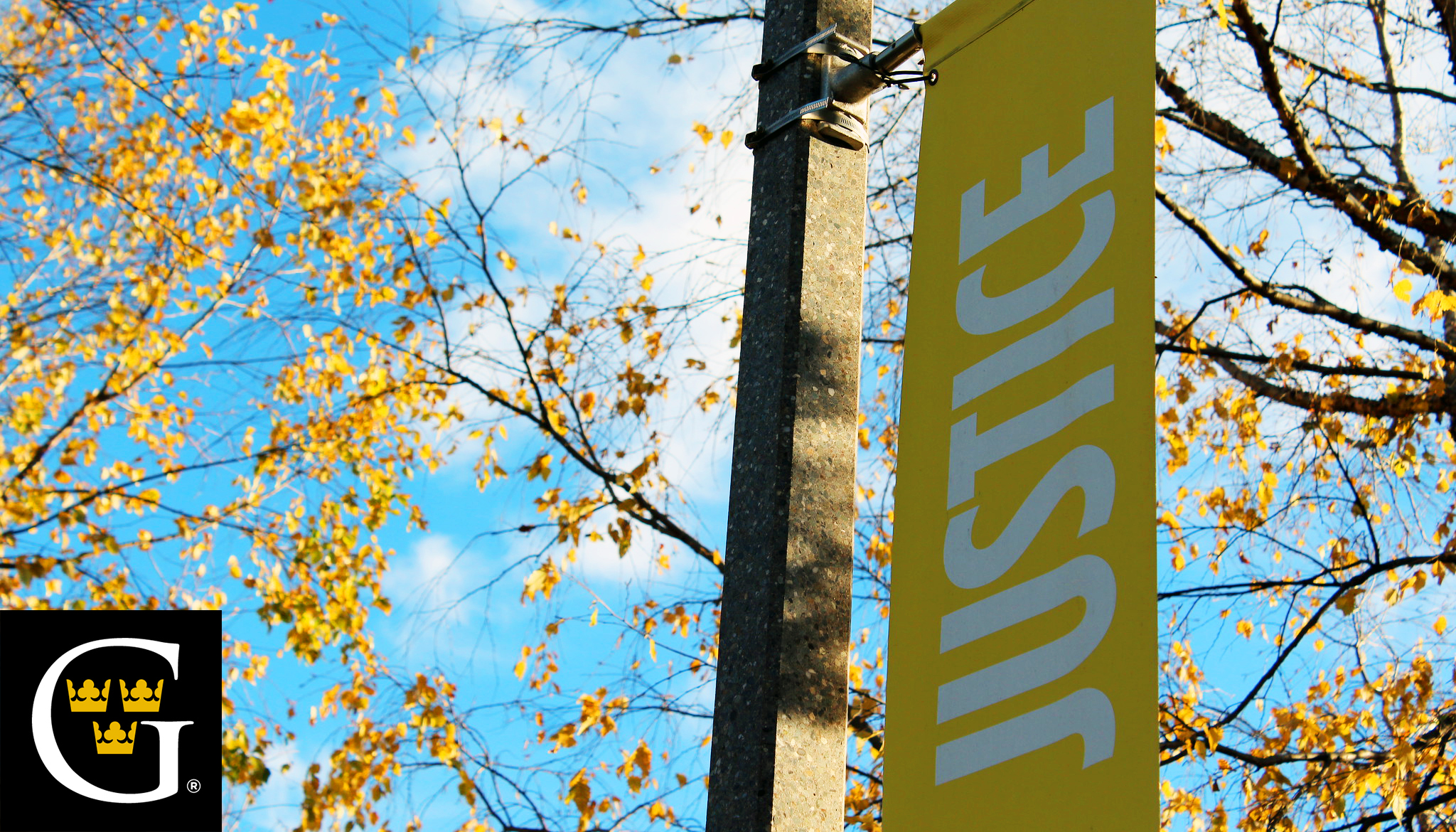Gustavus Adolphus College President Rebecca M. Bergman and her senior leadership team sent the following message to Gustavus students, faculty, and staff on Thursday, June 11, outlining steps the College will take in pursuit of racial justice.
TO: The Gustavus Community
FROM: President Bergman and the President’s Cabinet
SUBJECT: Gustavus Actions for Racial Justice
DATE: June 11, 2020
Since George Floyd was killed by Minneapolis police on May 25, our local and global communities—from Gustavus to Minneapolis-St. Paul to Washington D.C. to cities around the world—have cried out for justice and organized for change.
George Floyd’s name joins those of other Black men and women who have been killed by racist ideologies that manifest in systemic oppression and racial violence. Breonna Taylor. Ahmaud Arbery. Mike Brown. Sandra Bland. Walter Scott. Eric Garner. Jamar Clark. Philando Castile. Many other names could be added to this list. Too many.
As Gustavus looks to the future, we—as the College’s senior leadership team—assert and publicly declare that Black Lives Matter. Furthermore, we want to apologize to the Gustavus community—and especially our Black students, faculty, and staff, and all people of color on our campus—that this antiracist work did not begin sooner. We have not done enough to listen, support, and lead our community’s march toward racial justice. We can, and will, do better.
Today, we write with concrete steps that Gustavus will take to confront racial injustice. First, however, we acknowledge and thank the many of you who have reached out to us and other College leaders over the last two weeks to call for meaningful changes on campus. We also recognize the many members of our community who have engaged in peaceful protest, donated time and money to support organizations and help your communities, and redoubled your efforts for justice.
Gustavus commits to taking action in the following ways:
This summer, we will:
-
Conduct an independent review of the College Bias Response Team’s membership, processes, and practices;
-
Create a new mental health counselor position in the Gustavus Counseling Center with a primary focus on supporting students of color;
-
Continue planning and generate a timeline for expanded physical space and other resources for the Center for Inclusive Excellence;
-
Act on the recommendations of consulting firm Team Dynamics, who is currently conducting an independent, external review of hiring practices for staff positions;
-
Work with the President’s Council on Diversity, Equity, and Inclusion (PCDEI) to identify and complete additional implicit/unconscious bias training for members of the President’s Cabinet;
-
Join our colleagues at North Central University in Minneapolis and institutions of higher education across the nation in creating scholarship opportunities for students from historically underrepresented groups in honor of George Floyd;
-
Pursue organizational membership in the Mankato Area Chapter of the NAACP and support the Chapter’s work in our local communities.
This fall, we will:
-
Begin the process for launching a national search for a Cabinet-level leader whose work will focus on race, equity, and inclusion; and involve students, faculty, and staff in discerning the scope and responsibilities of this position;
-
Develop an antiracist education module for all students, faculty, and staff;
-
Roll out the College’s new general education curriculum, which includes graduation requirements and new courses related to U.S. Identities and Difference as well as Global Cultures;
-
Host focus groups on topics related to racial equity and inclusion that are impacting our campus community;
-
Implement the College’s interfaith strategic plan, with attention to the intersection of race, culture, and religion;
-
Increase community outreach, partnerships, and advocacy in the Saint Peter/Mankato area, the Twin Cities, and beyond.
Gusties, this is part of a longer conversation about how all of us can work to dismantle systemic racism in our own community, commit to antiracist action, and act on this great challenge of our time both on campus and in the world. If you have thoughts you would like to share about these actions or other steps the College should consider in its antiracist work, please email racialjustice@gustavus.edu.
Today, we commit to listening and learning. We commit to humility. We commit to deepening our own racial understanding and antiracist work. We commit to embracing discomfort as our community grows toward greater justice. We commit to action.
Yours in community,
President Bergman
Brenda Kelly, PhD, Provost and Dean of the College
Curt Kowaleski, MBA, Chief Financial Officer, Vice President for Finance, and Treasurer
JoNes VanHecke, PhD, Vice President for Student Life and Dean of Students
Kathi Tunheim, PhD, Vice President for Mission, Strategy, and Innovation
Thomas W. Young, Vice President for Advancement
Tim Kennedy, Vice President for Marketing and Communication
Richard Aune, Associate Vice President for Enrollment and Dean of Admission
Kirk Carlson, Associate Vice President for Enrollment and Associate Dean of Financial Aid

Leave a Reply